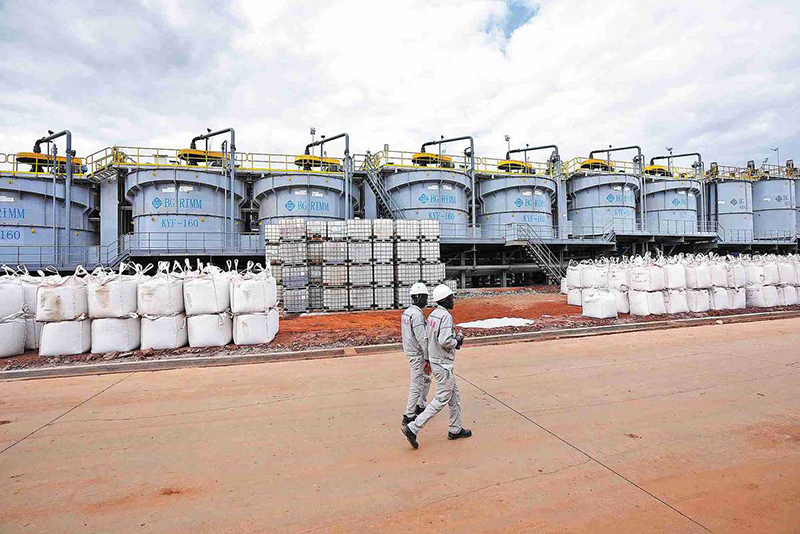- Business
- No Comment
Chinese investments boost lithium mining industry in Zimbabwe

By Xinhua
HARARE: When Zimbabwe, a country in southern Africa rich in natural resources, seeks to capitalize on the global drive toward renewable energy to grow its economy, Chinese investments in its lithium industry are expected to help fulfill that ambition.
Earlier last month, Chinese companies put two lithium plants into operation in Zimbabwe, injecting impetus to the African nation’s push to become a major value in the supply chain for lithium batteries.
On July 5, Zhejiang Huayou Cobalt, through its local unit Prospect Lithium Zimbabwe, commissioned a $300 million processing plant at its Arcadia lithium mine in Goromonzi near the capital Harare, as it seeks to consolidate its position as one of the top battery material producers in the world.
In 2022, the Chinese company completed a $422 million acquisition of the Arcadia lithium mine from Australia-listed Prospect Resources with other investors.
According to the first quarter report released by the Zimbabwe Investment and Development Agency, China is the major source of foreign investment in Zimbabwe, with significant investments registered in the mining sector, particularly the lithium subsector.
“The global boom in renewable energy has seen an increase in the number of investor inquiries into the sector, with the processing of applications underway,” according to the report.
Following the completion of the processing plant at its Arcadia mine, PLZ currently has the capacity to process 4.5 million metric tons of lithium ore, and produce 450,000 tons of concentrate annually, according to Trevor Barnard, deputy general manager of the company.
“We have plans to further beneficiate this concentrate and manufacture further beneficiated products in the country. Feasibility studies are currently underway as we speak, and as soon as we finish those feasibility-economical studies, we will be able to plan the next phase of the project,” Barnard said after the commissioning ceremony.
Speaking at the ceremony, Zimbabwean President Emmerson Mnangagwa acknowledged the role that business entities from China are playing in Zimbabwe’s lithium sector.
“Lithium is the mineral of the present and future, hence its beneficiation and value addition by PLZ will position our country as an emerging and competitive player in the global lithium value chain. This is indeed a vote of confidence in Zimbabwe’s investment climate,” Mnangagwa said.
Recently, Sinomine Resource Group’s local unit, Bikita Minerals, said it had begun trial production at a new spodumene and petalite plant in Masvingo province in southeastern Zimbabwe.
“Once the Bikita Minerals lithium mine expansion project reaches its production capacity, it is expected to produce 300,000 tons of high-quality chemical grade spodumene concentrate annually,” the company said. “Commencement of the beneficiation production lines will further enhance the company’s lithium concentration supply capability and future business performance.”
Sinomine Resource Group acquired Bikita Minerals in 2022 and invested $200 million to expand existing operations at the mine.
In 2019, the Zimbabwean government set a target to achieve a $12 billion economy by the end of 2023, and lithium is expected to contribute at least $500 million to the set target.
To cash in on value addition, the government banned the export of raw lithium last year.
In May, Mines and Mining Development Minister Winston Chitando said lithium miners must go beyond the production of concentrates and develop production capacity for battery-grade lithium.
